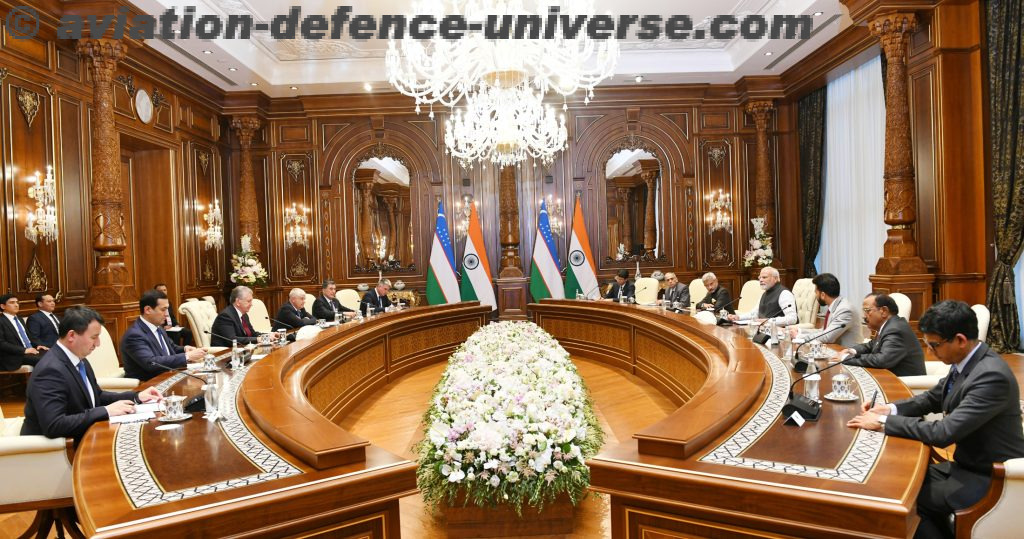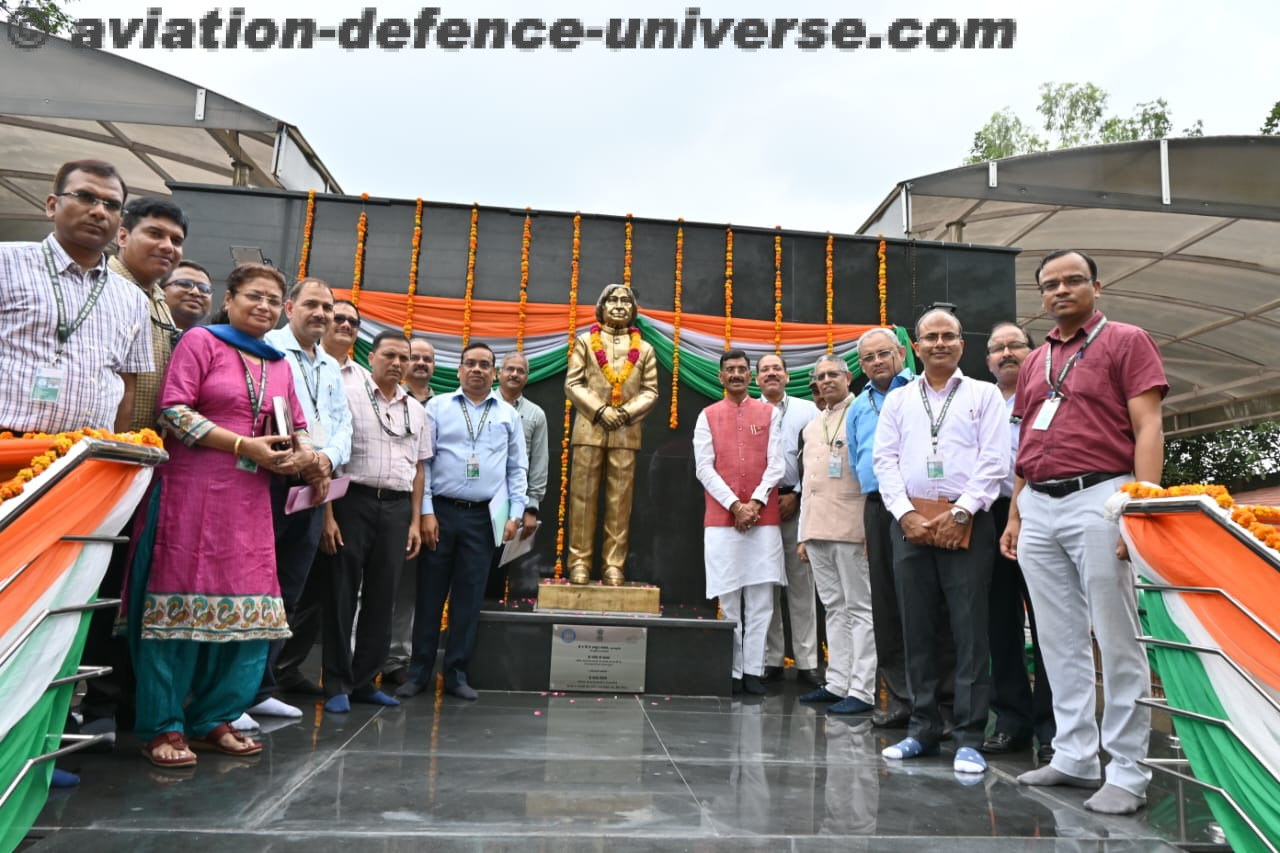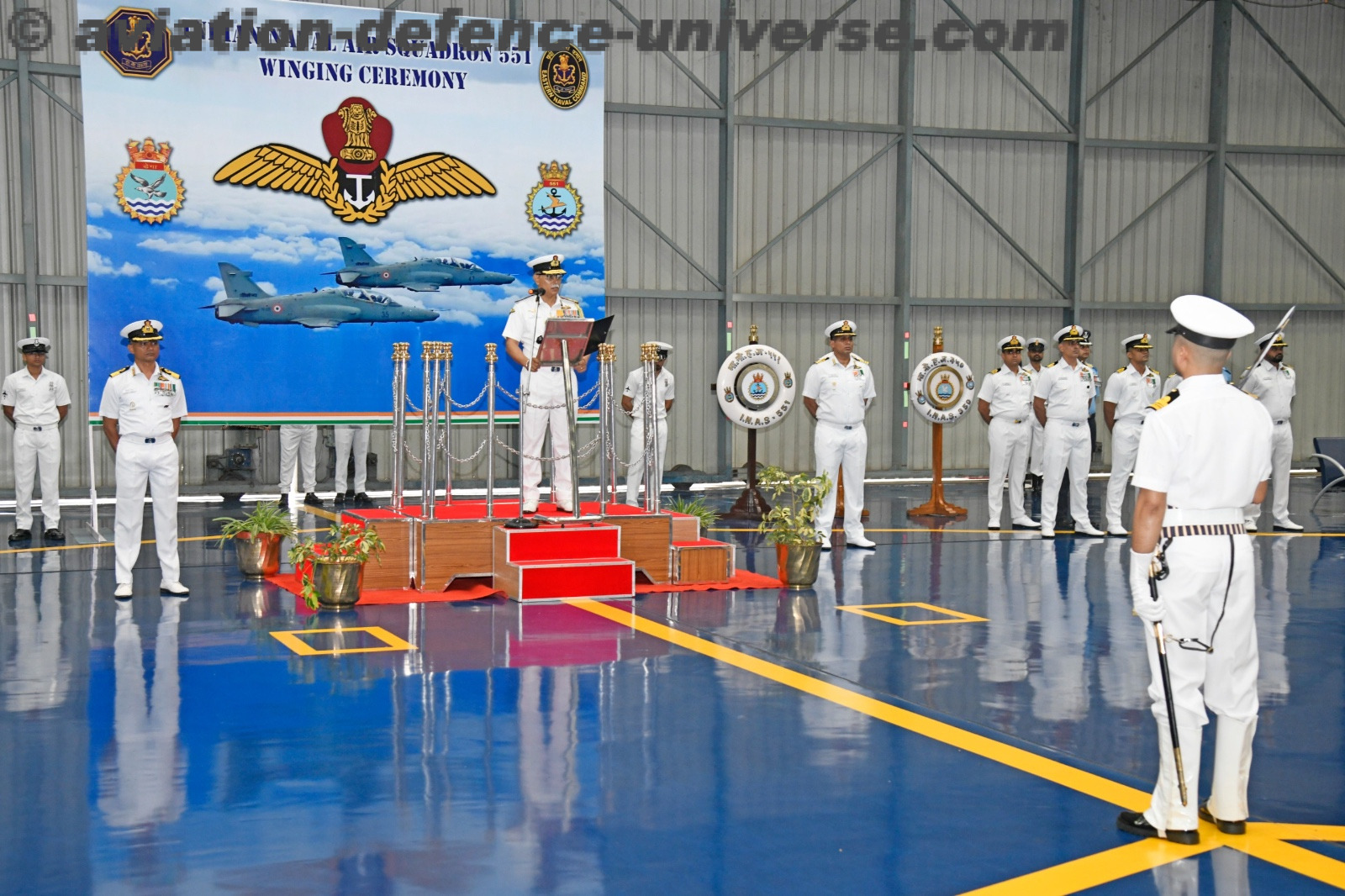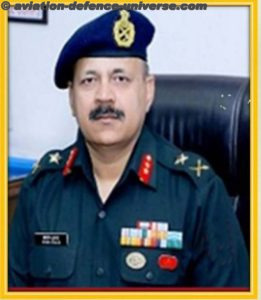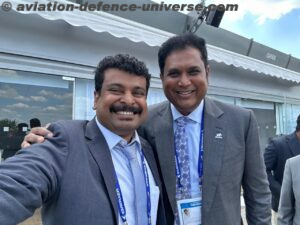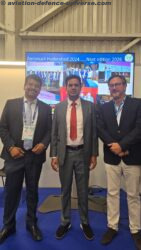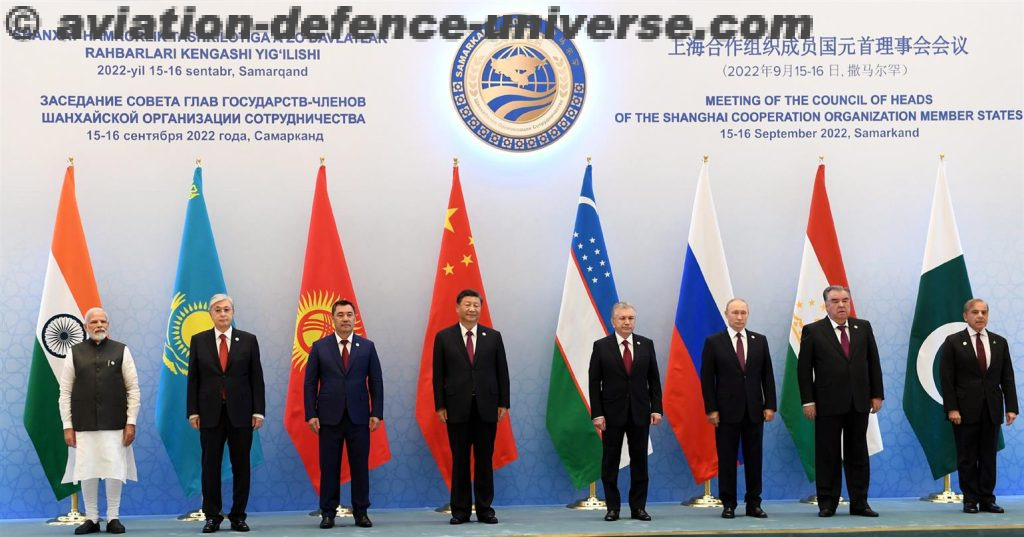
By Sangeeta Saxena
New Delhi. 18 September 2022. It was an event which attracted global eyeballs and one which probably had the longest declaration for a non-UN summit. The city was the Uzbek capital of Samarkand and the event was the 22nd Meeting of the Council of Heads of State of the Shanghai Cooperation Organization (SCO). Russia, China , Pakistan, India, Turkey , Iran, Nepal, Srilanka and it was evident that this meet would be cynosure of all eyes.
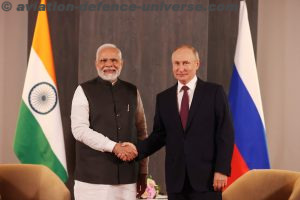
Amidst the many other decisions taken by the Council of Heads of the SCO Member States was also the decision on the Comprehensive Action Plan for 2023-2027 for implementation of provisions of the Treaty on Long-Term Good Neighbourliness, Friendship and Cooperation among the Shanghai Cooperation Organization Member States.
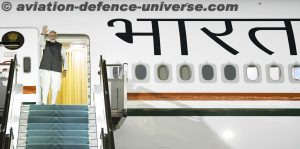
Indian Prime Minister Narendra Modi arrived in Samarkand, Uzbekistan at the invitation of the President of Uzbekistan, Shavkat Mirziyoyev, to attend the SCO summit which was divided in two sessions, one the restricted where the eight Member States participated and other the extended session where the Member States along with the Observers and the invited countries participated .
Prime Minister’s interventions spread across the two sessions. One, he shared India’s perspective on the regional and international situation and the issues of regional peace and security, including in Afghanistan. As you all know issues of development in the region and all over the world are a matter of agenda item under the SCO discussions. Two, he emphasized on the centrality of the aspirations and the needs of the Central Asian Republics in the Shanghai Cooperation Organization.
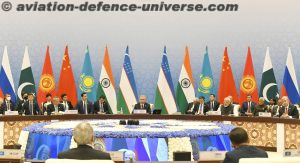 Three, need for greater cooperation to fight terrorism in the region. And in this context, he emphasized the important role that SCO can play, including through the work of the SCO RATS organization, which is the SCO’s structure to counter the threat of terrorism in our region. Four, emphasized the need for better regional connectivity, which is absolutely essential for greater economic and trade cooperation between India and the SCO member countries, India and Central Asia. And in this context the entire membership, including the Prime Minister welcomed the inclusion of Iran as a Member State of the SCO during this Summit. Chabahar, another important project for regional connectivity along with the North South Transport Corridor was also mentioned in Prime Minister’s intervention.
Three, need for greater cooperation to fight terrorism in the region. And in this context, he emphasized the important role that SCO can play, including through the work of the SCO RATS organization, which is the SCO’s structure to counter the threat of terrorism in our region. Four, emphasized the need for better regional connectivity, which is absolutely essential for greater economic and trade cooperation between India and the SCO member countries, India and Central Asia. And in this context the entire membership, including the Prime Minister welcomed the inclusion of Iran as a Member State of the SCO during this Summit. Chabahar, another important project for regional connectivity along with the North South Transport Corridor was also mentioned in Prime Minister’s intervention.
On terrorism, SCO agreed to works towards developing a unified list of terrorist, separatist and extremist organizations whose activities are prohibited on the territories of the SCO Member States. I must mention that each of the SCO Member State was very, very clear in recognizing the threat that this challenge poses to our region and through across the membership of the SCO.
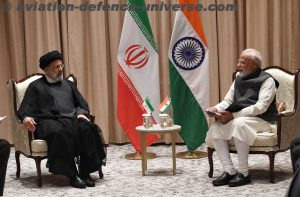
Prime Minister also reiterated his support for the ongoing expansion of the organization and in this context we welcomed Iran and Belarus as new Member States. Of course the two are in different stages of process in terms of their on-boarding as Member State, and also the inclusion of UAE, the Maldives, Bahrain, Kuwait, and Myanmar as new Dialogue Partners of the Shanghai Cooperation Organization. Prime Minister also drew attention to the need for substantive cooperation in the field of trade and economy, humanitarian and development partnerships, and using the millennia old civilizational ties between the SCO Members States as a foundation on which to build these two layers of cooperation between India and the SCO.
The Member States advocated respect for the right of peoples to independently and democratically choose their political and socio-economic development, and stress that the principles of mutual respect for sovereignty, independence, territorial integrity of States, equality, mutual benefit, non- interference in internal affairs, and non-use or threat of use of force are the basis for sustainable development of international relations. They reaffirmed their commitment to peaceful settlement of differences and disputes between countries through dialogue and consultation.
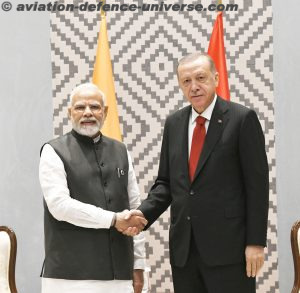
While reaffirming a strong commitment to fight terrorism, separatism and extremism, the member states resolved to continue to take active measures to address the conditions conducive to the spread of terrorism, cut off terrorist financing channels, suppress terrorist recruitment and cross-border movement, counter extremism, radicalization of youth, spread of terrorist ideology, and eliminate sleeper cells and places used as terrorist safe havens.
They called upon the international community to strengthen global cooperation in countering terrorism in all its forms and manifestations, with the UN playing a central role through full implementation of relevant UN Security Council resolutions and the Global Counter-Terrorism Strategy in accordance with the UN Charter and the principles of international law, without politicization or double standards, respecting the sovereignty and independence of all states, and to seek consensus on the adoption of a Comprehensive Convention on Combating International Terrorism.
At the Samarkand Summit the members considered the sustained implementation of the Joint Comprehensive Plan of Action on the Iranian nuclear programme important and, in accordance with UNSCR 2231, called upon all participants to rigorously implement their commitments for the full and effective implementation of the document.
The Member States that are parties to the Treaty on the Non-Proliferation of Nuclear Weapons advocate strict compliance with the provisions of the Treaty, the comprehensive and balanced advancement of all its objectives and principles, the strengthening of the global nuclear non-proliferation regime, the pursuit of nuclear disarmament, and the promotion of equal mutually beneficial cooperation in the peaceful uses of nuclear energy.
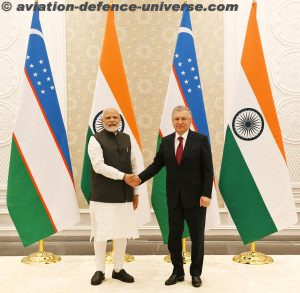
They again drew attention to the negative impact of unilateral and unrestricted build-ups of global missile defence systems by individual countries or groups of States on international security and stability and considered unacceptable attempts to ensure their own security at the expense of the security of other States.
Together they advocated multilateral political and diplomatic responses to global and regional challenges and threats to security, and will enhance cooperation and actively promote the multilateral arms control, disarmament and non-proliferation process, including efforts in the Conference on Disarmament.
The Member States are in favour of maintaining outer space free of weapons of all kinds and agree that it is important to ensure strict compliance with the existing legal regime regarding the use of outer space for exclusively peaceful purposes. They emphasize the need to conclude an international, legally binding instrument that would strengthen transparency and provide credible assurances against an arms – race and non-deployment of weapons in outer space.
They emphasized the importance of the Convention on the Prohibition of the Development, Production and Stockpiling of Bacteriological (Biological) and Toxin Weapons and on Their Destruction (BWC) as a pillar of the global security architecture. They stressed the need for strict compliance with the BWC, including through the adoption of a Protocol to the Convention establishing an effective verification mechanism. They opposed the establishment of any mechanisms duplicating the functions of the BWC, including as regards the competence of the UN Security Council.
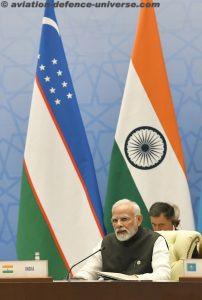
The Member States called for full compliance with the Convention on the Prohibition of the Development, Production, Stockpiling and Use of Chemical Weapons and on Their Destruction (CWC) as an effective disarmament and non- proliferation instrument. They stressed the importance of the speedy destruction of all declared chemical weapons stockpiles. The Member States reaffirm their support for the Organisation for the Prohibition of Chemical Weapons (OPCW) and called for agreed decisions to overcome the divisions within the Organisation and to ensure its integrity and effective operation in accordance with the Convention.
They believed that the early entry of the Protocol on Security Assurances to the Treaty on a Nuclear-Weapon-Free Zone in Central Asia into force will make a significant contribution to regional security and the strengthening of the nuclear non-proliferation regime for all signatory States.
SCO ended on a high note for India. The presidency of the SCO for the forthcoming period passes to the Republic of India. The next meeting of the SCO Council of Heads of State will be held in 2023 in the Republic of India.
